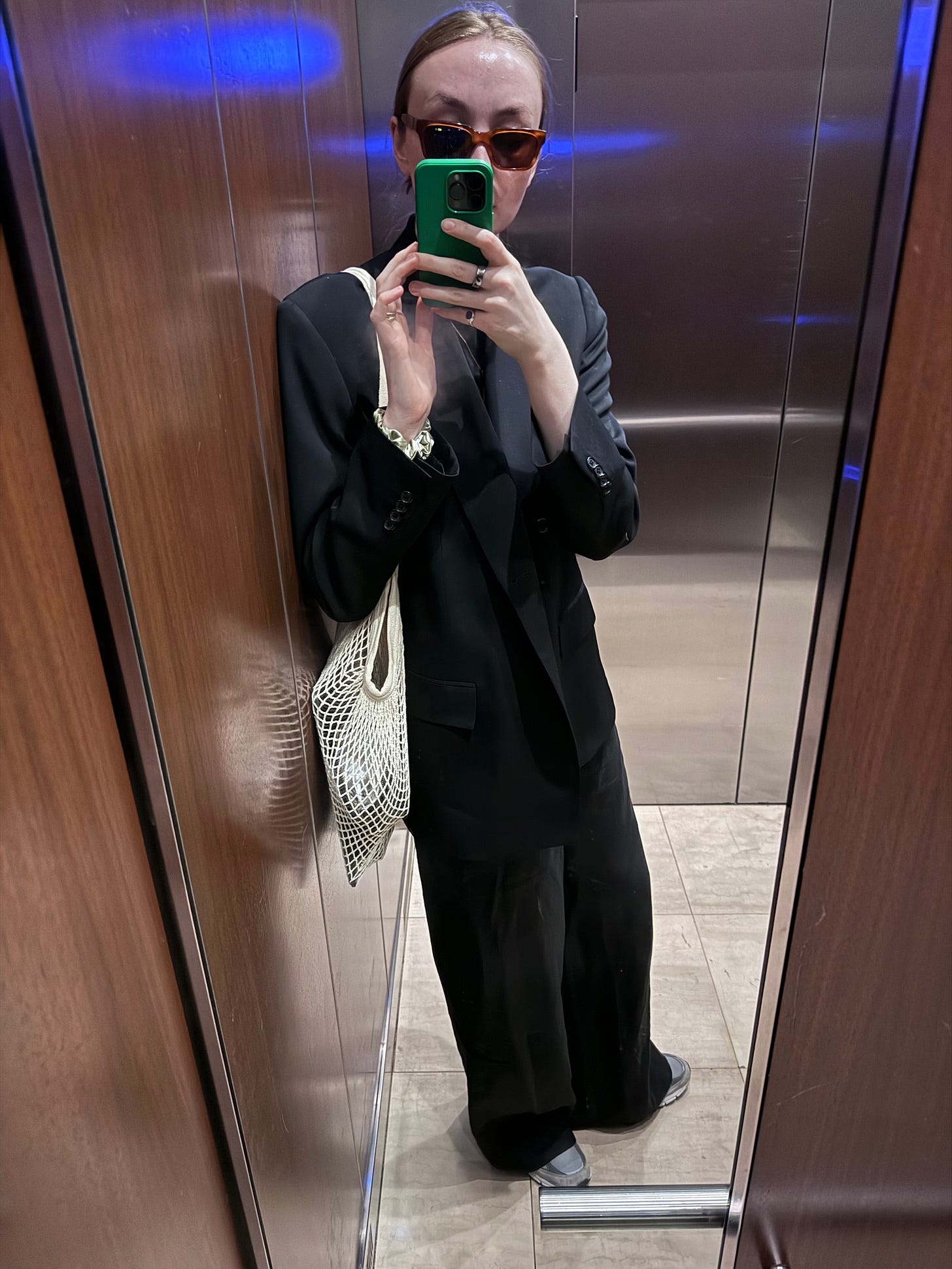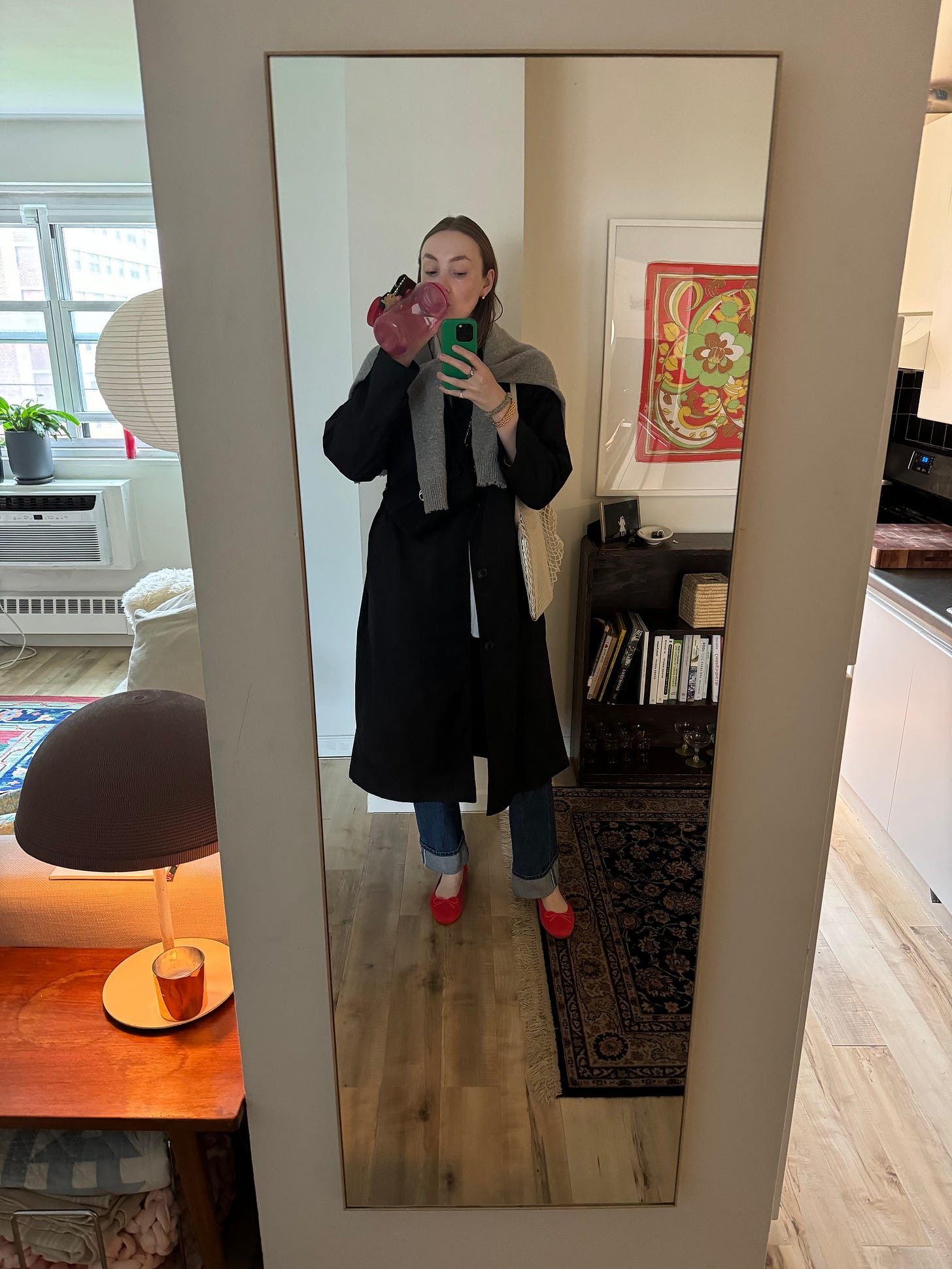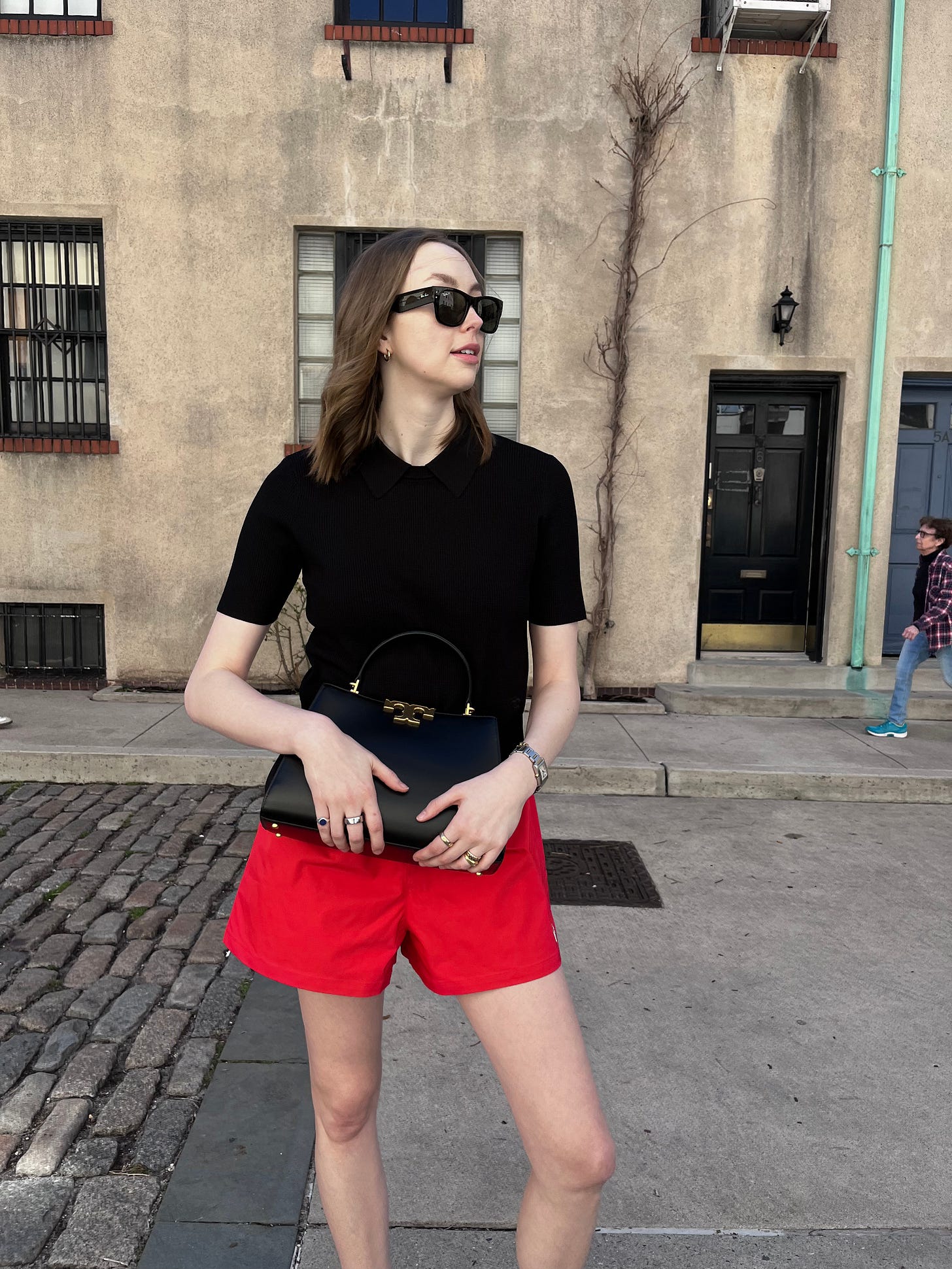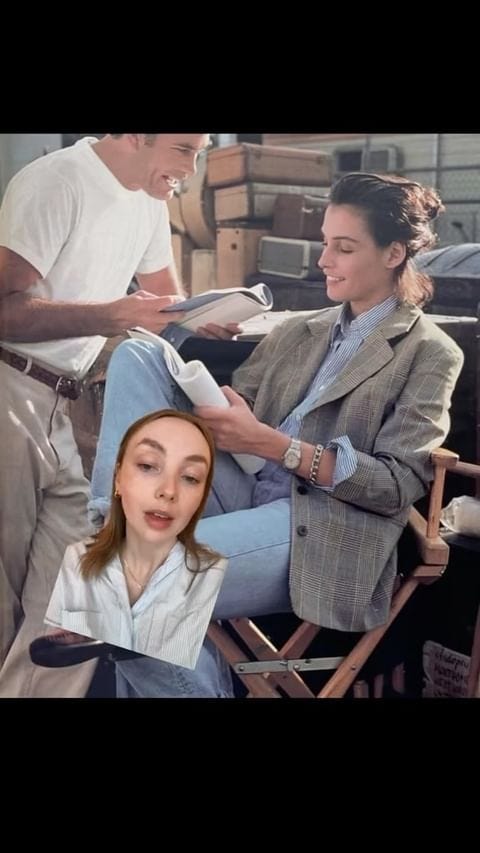Oddly enough, I came across Erika’s work on TikTok, but was happy to see quickly that she also had a Substack newsletter,
. Secondhand shopping is a way of life for me, and I was delighted to see a respected writer for the most high level publications show how every current trend could be done at a fraction of the cost. And of course, I just thought her style was fucking cool. Erika attended FIT, has a MFA in Nonfiction Writing from Bennington College, and writes for NY Magazine, Vogue, WSJ, Cup of Jo, and more. I’m so happy to have her on style stories!
(content warning: this post contains mention of disordered eating)
Q: Introduce yourself, your work, and how you spend your time.
I'm Erika Veurink—a writer, brand strategist, and host of EV Salon. I spend my days writing, searching eBay, and running around New York for meetings.
Q: What was your style like when you were a child?
I wore what I called "boy clothes" growing up, with random infusions of ribbons and ruffle dresses. I've always been tall (I'm 6'2") and clothes from the girl's section were usually too short or constrictive. I got made fun of a bit, but mostly, I was shy enough that it didn't bother me.
Q: Growing up, what messages were you given about what you should or shouldn’t wear (and from whom or where do you think those messages came)?
Growing up in Evangelical Christianity, messages around purity and modesty were my first lessons in what not to wear. No bra straps. Never let a boy see you with wet hair because then they'll picture you in the shower and then they're thinking of you naked and it's your fault kind of thing. The dress code at Christian school was quite strict—fingertips plus two inches and girls got sent to the office for "too tight" jeans all the time.
Since I gravitated toward looser clothes, it didn't impact me as much, but everyone was constantly talking about what girls were wearing—whether it would cause boys to "stumble" and what it meant about their "walk with God" that they were wearing something so revealing. I understood the power of clothing from a young age, even growing up in suburban Iowa.
Q: How has your style evolved since you were younger and what phases have you gone through with your style (i.e. high school grunge phase, early working days business casual phase, etc)?
The thing is, I've always wanted to wear the same thing. All of my life has been trying to divert from that set style and then coming back to it. I'm happiest in loose Levis, a striped blue button down, and loafers. I wore the exact thing in first grade and I'm wearing it now. But in high school, I discovered thrifting and loved the opportunity to try on endless styles. There was a satin purple pussy bow shirt I favored, a faux fur vest I stole from my grandma, and a phase where I wore a massive headband over my ears and teased my hair, referencing Brigitte Bardot.
In my early 20s, I tried to opt for tight short dresses on dates or even heels when I found myself going out with someone taller. But realizing I was bisexual in my mid-twenties really put an end to that. I started going back to the staples I always wanted to be wearing—big cashmere sweaters, suits, athletic shorts—instead of what I assumed some guy would want to see me in. When I met my now-husband four years ago, I remember feeling like I could dress like myself for the first time in a romantic context and feeling a deep safety in that.
Q: How have external pressures to conform to the ideal standard of beauty and the thought of how others view you affected your style?
I modeled when I was younger, which unsurprisingly impacted my ideas of how to dress. I was told to always "show my legs," my "best" asset, and balance my wider hips with strong shoulders. Sizing meant a lot to me growing up, too. I used to cut the tags out of vintage clothes that were beyond my usual size because it pained me to associate with them. An eating disorder and a stint in the fashion industry only further impacted these pressures to conform. Starting graduate school in writing helped to shift my self perception beyond my body.
Q: How have your sense of style and shopping habits shifted along with changes in your body?
I used to love the feeling of trying on clothes after a week of "being good" aka restrictive eating. I'd try on piles of vintage gowns that never fit on my period or when I was feeding myself, and feel a deep surge of delight. It never lasted and I never wore those dresses anywhere. But there was a sense of accomplishment fitting into them anyway.
After years of therapy and work in this area, I no longer keep clothes that fit when I'm "being good" in my closet. Even jeans that fit 4-5 days out of my cycle have been donated. Since my style skews oversized, there's no reason to keep them. And in turn, I've found joy in knowing I can wear everything in my closet, no matter how I've fed my body the week before.
Q: What barriers do you encounter in trying to express your style? Are there any situations or spaces you feel your style prohibits you from accessing or gives you better access to?
I certainly used to feel like I was in my clubbing stage in my early 20s. I never had a bodycon skirt or sheer top. Instead, I'd pull my hair into a high ponytail, slip on some black denim, and wear a black sports tank top. Turns out, it's pretty easy for any 19 year old to get into Paul's Baby Grand, but I definitely felt like the odd one out.
Now, when I'm in some variation of my classic jeans + button up + loafers, I feel like I can step into almost situation feeling prepared and at home.
Q: Do you have any style icons? Who are they?
So many. I adore Sofia Coppola, Chloë Sevigny, Prince, Emmanuelle Alt, and Paul Newman, to name a few. Plus, taking pictures of outfits on the street is my favorite NY passtime.
Q: How would you define your current relationship to clothes and style?
I'm in a reluctant, lifelong love affair with fashion. I'm buying way less. I'm wearing the same thing over and over. And it's finally starting to feel like that's ok.
Q: What makes your style authentic to who you are today?
What I say "no" to is just as important as what I embrace. I love looking at an outfit or a piece and thinking, "That's beautiful, and that's not for me." It feels like maturing in the best way.
Q: Do you wear anything that’s conventionally considered unflattering?
I don't own any tight pants. I love oversized plus oversized versus the conventional notion of "balance." I haven't worn a heel in years. I love sneakers with any outfit. And I love playing up my 36" inseam with massively long pants.
Thank you so much for sharing, Erika! I’m sure many readers with relate to the feeling of being policed around their clothing, evangelical upbringing or not. I really resonated with that phase of experimenting with clothing by thrifting in my teens and 20’s, and have also come to a place where it’s ok if I wear mostly the same thing all the time. For more from Erika, follow her Substack,
.Read past guests’ style stories here.
Here are Erika’s 3 go-to wardrobe items.













